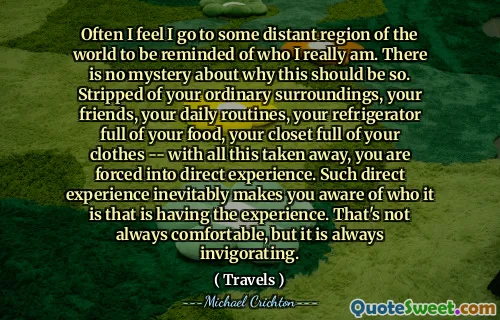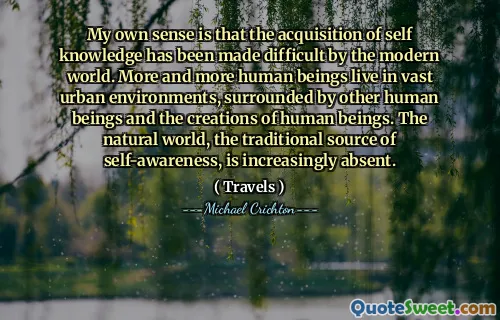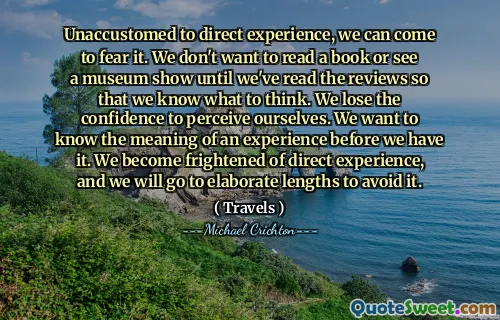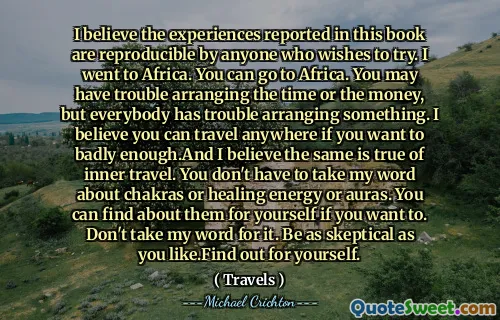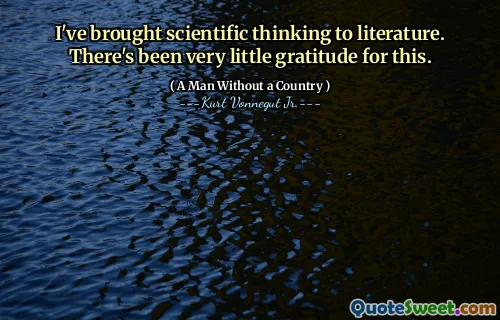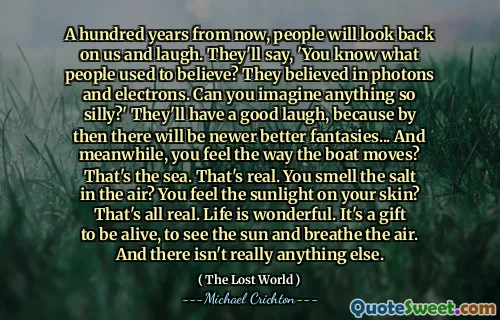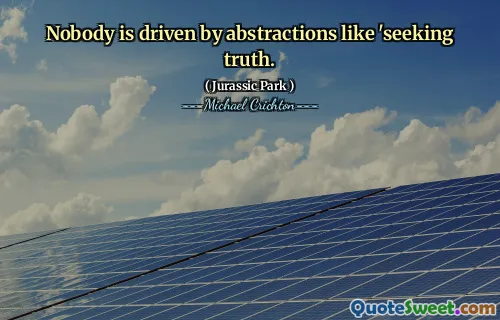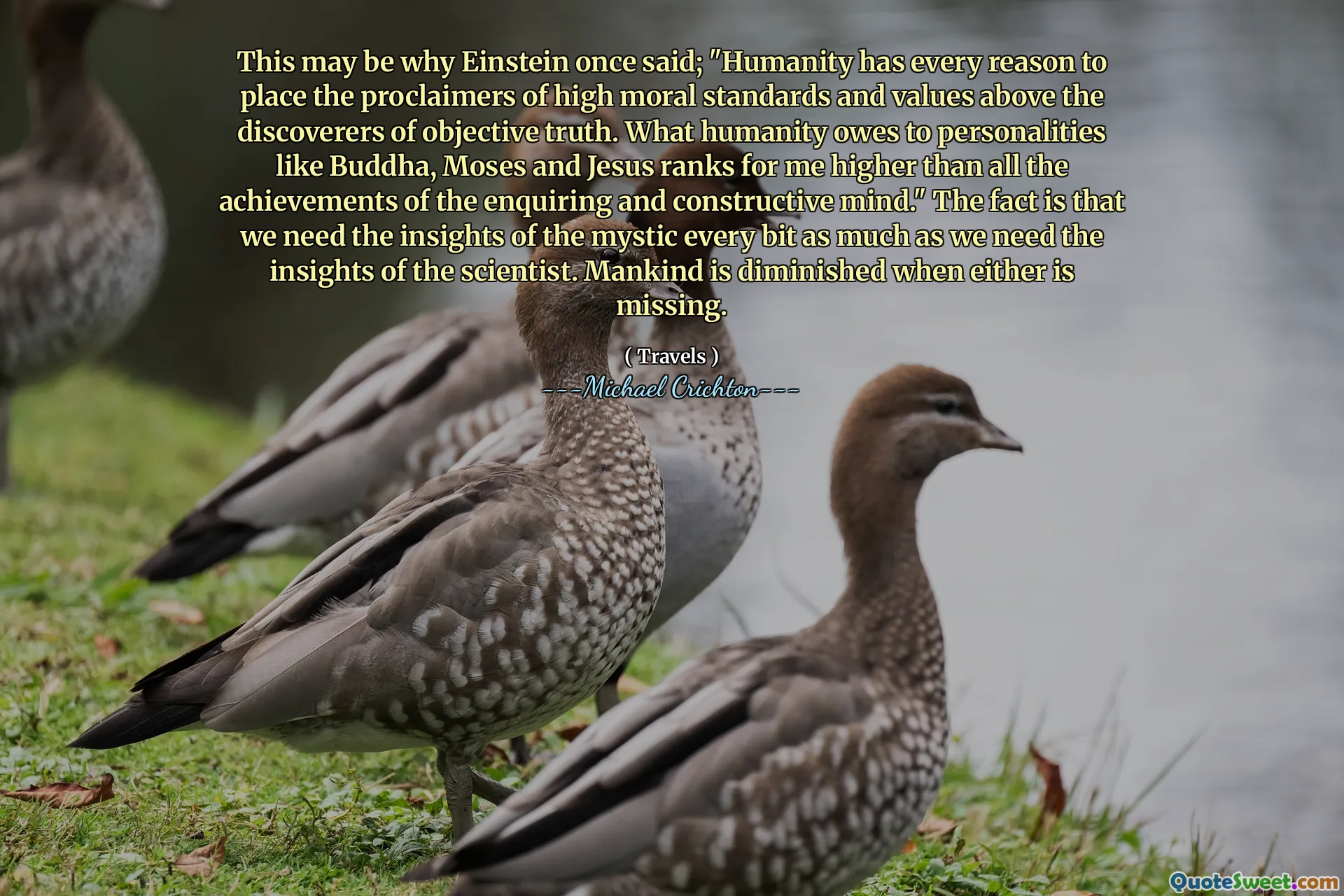
This may be why Einstein once said; "Humanity has every reason to place the proclaimers of high moral standards and values above the discoverers of objective truth. What humanity owes to personalities like Buddha, Moses and Jesus ranks for me higher than all the achievements of the enquiring and constructive mind." The fact is that we need the insights of the mystic every bit as much as we need the insights of the scientist. Mankind is diminished when either is missing.
In Michael Crichton's book "Travels," he emphasizes the importance of both spiritual and scientific insights in enriching human experience. Quoting Einstein, he suggests that the contributions of great moral figures like Buddha, Moses, and Jesus hold immense value, potentially surpassing purely scientific discoveries. This highlights the belief that ethical and spiritual wisdom plays a crucial role in guiding humanity alongside our pursuit of knowledge and understanding through science.
Crichton argues that both mystics and scientists contribute uniquely to our comprehension of the world. When we neglect either perspective, we risk diminishing our collective humanity. Embracing both insights allows for a more holistic understanding of existence, suggesting that the interplay between moral values and empirical truth is vital for a balanced and fulfilling human experience.
